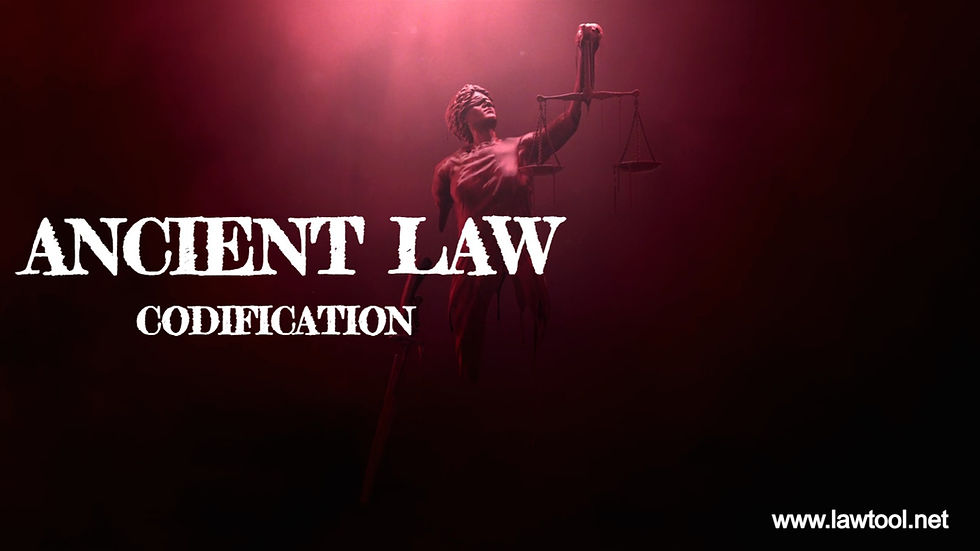CODIFICATION
- www.lawtool.net
- Jun 23, 2020
- 2 min read
Updated: Jul 30, 2021
'The most celebrated system of jurisprudence known to the world begins as it ends with a code' Henry Maine
The magnificent role played by codification is expressed by Henry Maine with these words. 'The most celebrated system of jurisprudence known to the world begins as it ends with a code'. The twelve tables of Roman Law dates back to 450 B.C. This is the beginning. This ended with the corpus juris civils of Justinian (534A.D) Codification marks the beginning as well as the matured stage of Roman jurisprudence.
Two meanings are given to codification
i) Conversion of unwritten law into written law : The twelve tables,
ii) Conversion of written into well written law :
The corpus Juris belongs to this type.
The twelve tables was an enunciation in words of the existing customs of the Roman people. The reasons for making this code are to be seen in the political discontent in Rome. The patricians had all the political and administrative powers. There were many perversions in the rules applied to the plebians. The patricians interpreted the customs. Hence there was discontent among plebians. After a long struggle, a commission 'The Decemarate' consisting of 5 pleabians and 5 patricians was formed which drafted the twelve tables. Responsa Prudentium: The customary law of the Romans called Jus civile was a part of the twelve tables.
The Romans had a progressive method. 'Jurists' were specialists in law. They gave 'responsa' (answers) to elucidate law. These were complied. Emperor Hadrian declared that these had the force of law. Great luminaries like Gaius, Paul, Papinian etc. wrote elaborate treatises on law. ie., on praetor's edict. This was a great legal reform. The development of the office of the Praetor was a great step forward. He published the 'Edict'- a set of rules. One remarkable development was the office of Praetor Peregrines who resolved cases between a foreigner and a civilian.
This became a special law called Jus Gentium : the law of Nations. Justinian in 528 A.D. Issued instruction for compilation of new code which was made in 529 A.D. This was replaced by the 534 A.D.Code. Besides this code, Justinian had compiled 'Digest' of Roman
Law and the 'Institutes' (text-books for students). All these are collectively called corpus juris civilis. This is a glorious monument of fame to its creators and also a priceless legacy to the modern world. This is a classical work in legal history.


Comments